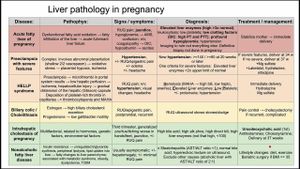Apple's artificial intelligence (AI) strategy appears to be on the cusp of significant change, as new market developments could provide the tech giant with unexpected advantages amid shifting industry conditions. Recent earnings reports from major tech companies, collectively known as the Magnificent 7, have shown distinct approaches to AI investment, with Apple taking strides to navigate its unique challenges and opportunities.
During its Q1 2025 earnings call, Apple Inc. (AAPL) did not disclose any specific figures related to its AI investments. Yet CEO Tim Cook emphasized the company's commitment to integrating AI technologies across its product lineup, hinting at plans to advance its AI capabilities beyond what competitors have shared. Unlike rivals such as Microsoft and Meta Platforms, both of which are poised to increase their AI spending, Apple's reluctance to provide detailed projections has sparked concerns among investors and analysts alike.
According to Barchart, questions have arisen about whether Apple's heavily marketed "Apple Intelligence" features will be compelling enough to drive demand for its latest devices, particularly the iPhone 16. This skepticism was echoed by MoffettNathanson, which downgraded Apple, issuing a "Sell" rating due to increasingly weak consumer responses, coinciding with Apple's reported year-over-year decline in iPhone sales.
While concerns loom over Apple's AI strategy, recent developments led by rival DeepSeek might prove beneficial for Apple moving forward. DeepSeek's R1 AI model has garnered significant attention, reportedly trained at just $5.6 billion using less advanced chips. This breakthrough could compel technology companies, including Apple, to reformulate their AI strategies, particularly if the model heralds the ability to run sophisticated AI systems on smaller devices.
The Financial Times reported, "DeepSeek’s model could point to a future where sophisticated AI systems are small and efficient enough to run on smartphones, rather than requiring vast investments in cloud computing infrastructure.” If this proves true, Apple might find itself with a competitive edge as the leading smartphone manufacturer.
Thomas Husson, Principal Analyst at Forrester, observed, "DeepSeek’s smaller model is more of a validation of Apple Intelligence since it will rely more heavily on a local on-device AI approach increasingly based on edge technology." This localized strategy aligns with Apple’s historical competitive advantages and distribution platform strength.
Experts note the growing importance of distribution platforms as consumer large language models (LLMs) become commoditized. A Morgan Stanley analyst highlighted, "Distribution platforms become key assets, and Apple owns the most valuable consumer technology distribution platform today." This insight emphasizes the potential shift provided by DeepSeek's approach, which may help fortify Apple’s market position.
On the recent earnings call, Cook praised the innovations born from AI advancements, describing them as "driving efficiency." He suggested the company would continue to adopt what he referred to as a “hybrid model” for capital expenditures. By leveraging its established infrastructure and engineering capabilities, Apple may be uniquely positioned to integrate local AI solutions seamlessly across its expansive product lineup.
Despite facing short-term challenges—including declines from key markets like China—Apple's strategic decisions surrounding AI investments and partnerships could position the company to pivot favorably within the competitive technology sector. An influx of funding toward AI development from other tech giants does not seem to deter Cook from exploring innovative avenues for AI integration.
Historically, Apple has taken calculated risks, and its current strategy reflects the same ethos. With every potential shift signaled by DeepSeek’s advancements, Apple may well be edging closer to redefining its role as both prime manufacturer and innovator at the forefront of AI technology.
Moving forward, the reactions from investors and consumers will be telling. Will Apple's focused and measured approach to AI development yield the competitive advantage needed to solidify or even expand its market share? The intricacies of the AI arms race continue to evolve, demanding attention from both tech aficionados and everyday users alike.
By closely monitoring trends and embracing adaptive strategies, Apple can capitalize on the market's dynamics. With integrity and innovation at the core, the tech giant has time to prove its mettle as it navigates this transformative age.



